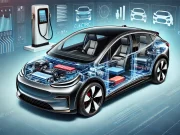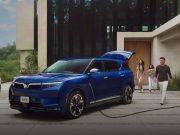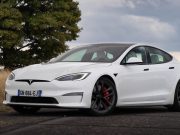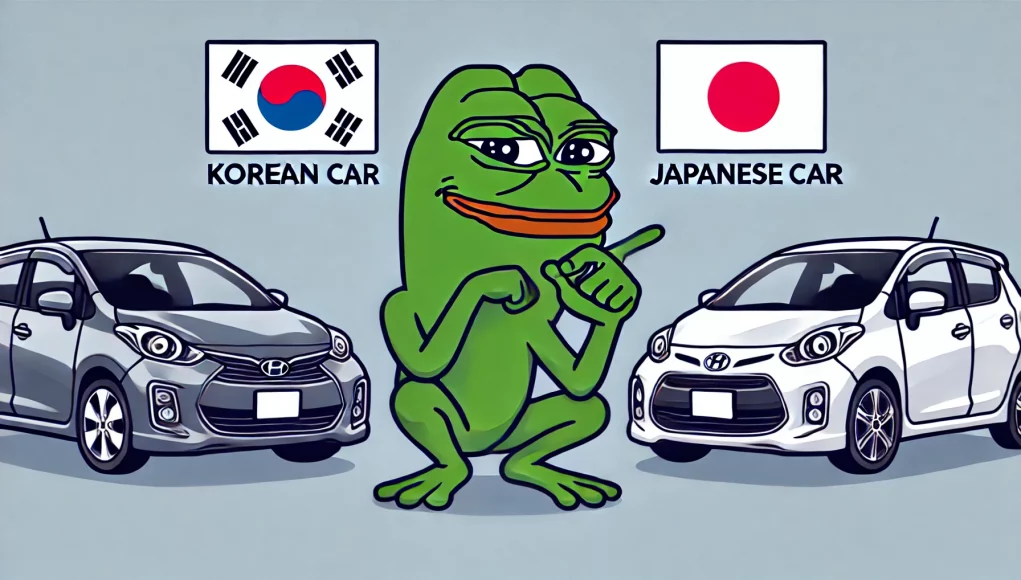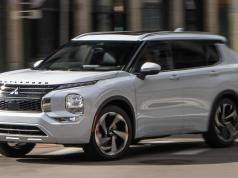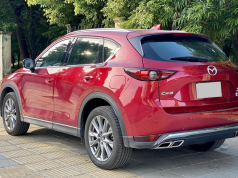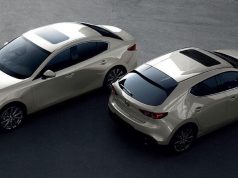The debate over the quality gap between Korean and Japanese cars has been a topic of discussion among automotive enthusiasts for years. Historically, Japanese automakers like Toyota, Honda, and Nissan have been renowned for their reliability, engineering excellence, and build quality. However, Korean brands such as Hyundai and Kia have made significant strides in recent decades. This article explores whether Korean cars have closed the gap with their Japanese counterparts in terms of quality, reliability, performance, technology, design, and overall value, with insights from discussions on the voz.vn automotive forum.
Historical Context
Japanese Automakers’ Legacy
Japanese car manufacturers have long been celebrated for:
- Unmatched Reliability: Models like the Toyota Corolla and Honda Civic are synonymous with durability.
- Engineering Excellence: A focus on precision and innovation has set high industry standards.
- Resale Value: Consistently high, reflecting consumer trust in longevity.
- Low Maintenance Costs: Widespread availability of parts and straightforward servicing.
The Rise of Korean Automakers
Korean carmakers initially entered the global market as budget-friendly alternatives, but over the past 20 years, they have:
- Invested Heavily in R&D: Enhancing engineering and manufacturing processes.
- Revamped Design Philosophy: Hiring top designers, leading to award-winning models.
- Improved Quality Control: Implementing strict standards to boost reliability.
- Extended Warranties: Offering 5- to 7-year warranties to build consumer confidence.
Build Quality Comparison
Japanese Cars
Japanese vehicles are known for:
- Consistent Manufacturing Quality: Uniformity and attention to detail.
- High-Quality Materials: Durable interiors and exteriors that withstand wear.
- Precision Assembly: Tight panel gaps and solid construction.
Korean Cars
Korean vehicles have significantly improved in:
- Material Quality: Using premium plastics, metals, and upholstery.
- Fit and Finish: Modern models exhibit excellent craftsmanship.
- Design Innovation: Bold and contemporary styling that appeals to global markets.
Forum Insights from voz.vn:
- Positive Remarks: Many users acknowledge the substantial improvements in Korean car quality.
- Reservations: Some still feel Japanese cars have an edge in build solidity and long-term durability.
Reliability and Maintenance
Japanese Cars
- Long-Term Dependability: A track record of vehicles lasting well over a decade with minimal issues.
- Lower Maintenance Frequency: Fewer unexpected repairs.
- Ease of Servicing: Abundant availability of affordable parts and experienced mechanics.
Korean Cars
- Improved Reliability: Recent models perform well in reliability surveys.
- Generous Warranties: Up to 10 years or 100,000 miles, showcasing confidence in their products.
- Maintenance Considerations: Slight concerns remain about long-term reliability beyond warranty periods.
User Experiences from voz.vn:
- Satisfaction with New Models: Owners of newer Korean cars report few problems within the warranty period.
- Concerns Over Time: Some users note that after 5 years, Korean cars may require more maintenance than Japanese cars.
- Japanese Car Endurance: Users emphasize that Japanese vehicles often remain trouble-free for over a decade.
Performance and Driving Experience
Japanese Cars
- Engine Smoothness: Prioritizing fuel efficiency and a comfortable ride.
- Balanced Handling: Suitable for daily commuting and long journeys.
- Hybrid Technology Leaders: Pioneering models like the Toyota Prius.
Korean Cars
- Dynamic Driving: Introduction of turbocharged engines and sport-tuned suspensions.
- Electric Vehicle (EV) Advancement: Rapid progress with models like the Hyundai Ioniq and Kia EV6.
- Engaging Experience: A focus on delivering a fun-to-drive feel.
Feedback from voz.vn:
- Preference for Korean Sportiness: Some users enjoy the spirited performance of Korean cars.
- Japanese Smoothness Valued: Others prefer the consistent, reliable performance of Japanese models.
Technology and Features
Japanese Cars
- Reliability Over Novelty: Emphasis on proven technology.
- User-Friendly Interfaces: Intuitive systems that are easy to operate.
- Gradual Tech Adoption: Cautious integration of new features to ensure dependability.
Korean Cars
- Tech-Forward Approach: Rapid incorporation of the latest features.
- Value Proposition: Offering high-end technology at lower trim levels.
- Innovative Features:
- Large touchscreen displays.
- Digital instrument clusters.
- Advanced driver-assistance systems.
Insights from voz.vn:
- Korean Tech Advantage: Users appreciate the modern features in Korean cars.
- Desire for More in Japanese Cars: Some wish Japanese brands would adopt new technologies faster.
Design and Aesthetic Appeal
Japanese Cars
- Timeless Designs: Focus on functionality and longevity.
- Premium Styling: Brands like Lexus and Mazda are praised for elegance.
- Conservative Evolution: Subtle updates to maintain brand identity.
Korean Cars
- Bold Styling: Eye-catching designs that stand out.
- Award-Winning Aesthetics: Recognition from international design communities.
- Influential Designers: Hiring renowned professionals to lead design teams.
voz.vn Community Opinions:
- Favoring Korean Innovation: Many users are drawn to the modern, aggressive looks of Korean cars.
- Appreciating Japanese Simplicity: Others prefer the understated elegance of Japanese designs.
Pricing and Value for Money
Japanese Cars
- Higher Initial Costs: Reflecting brand reputation and reliability.
- Long-Term Value: Lower maintenance and higher resale value.
- Investment Perspective: Viewed as a long-term, cost-effective choice.
Korean Cars
- Competitive Pricing: More affordable upfront.
- Feature-Rich Options: More standard features at each trim level.
- Attractive Financing: Deals and incentives make them accessible.
Forum Discussions on voz.vn:
- Immediate Value with Korean Cars: Users highlight the bang-for-buck factor.
- Long-Term Savings with Japanese Cars: Emphasis on total cost of ownership over time.
Resale Value
Japanese Cars
- Strong Retention: High demand keeps used prices stable.
- Trusted Brands: Consumer confidence translates to better resale.
- Examples: Toyota Camry, Honda CR-V maintain high market value.
Korean Cars
- Improving but Lagging: Resale values are rising but still behind Japanese cars.
- Higher Depreciation: Faster value drop affects long-term cost considerations.
voz.vn User Comments:
- Resale Concerns: Some users are wary of the depreciation rate of Korean cars.
- Japanese Cars Preferred for Resale: Seen as a safer financial choice.
Electric and Hybrid Technology
Japanese Cars
- Hybrid Pioneers: Leading with models like the Toyota Prius.
- Slow EV Adoption: Gradual introduction of fully electric models.
- Focus on Alternative Fuels: Investment in hydrogen fuel cells.
Korean Cars
- EV Leadership: Aggressive rollout of electric models.
- Notable EVs: Hyundai Ioniq 5 and Kia EV6 are gaining international acclaim.
- Advanced Platforms: Dedicated EV architectures for improved performance.
voz.vn Discussions:
- Korean EV Edge: Users recognize Korean brands as frontrunners in EV tech.
- Japanese Hybrid Reliability: Confidence remains high in Japanese hybrid systems.
Expert Opinion from Worrycars
As an automotive expert specializing in the Southeast Asian market, particularly Vietnam, I have observed the following:
Market Trends in Vietnam and Southeast Asia
- Rapid Growth: Both Korean and Japanese brands have a strong presence.
- Consumer Preferences:
- Japanese Cars: Favored for reliability and resale value.
- Korean Cars: Increasingly popular due to modern features and competitive pricing.
- Infrastructure Influence: As EV infrastructure develops, Korean brands may gain an advantage.
Quality Perception
- Closing the Gap: The quality difference between Korean and Japanese cars has narrowed significantly.
- Brand Loyalty: Many Vietnamese consumers remain loyal to Japanese brands due to historical trust.
- Emerging Trust in Korean Brands: Younger buyers are more open to Korean cars, appreciating the technology and design.
Recommendations
- For Long-Term Ownership: Japanese cars are still the safer bet for those planning to keep their vehicle for many years.
- For Cutting-Edge Features: Korean cars offer advanced technology and design at a more accessible price.
- Resale Considerations: If resale value is a priority, Japanese cars generally offer better returns.
Conclusion
In the Vietnamese and broader Southeast Asian context, both Korean and Japanese cars have their merits. The decision ultimately depends on individual priorities:
- Choose a Japanese Car If:
- Reliability and low maintenance are top priorities.
- You value higher resale value.
- A traditional and proven design appeals to you.
- Choose a Korean Car If:
- Advanced technology and modern design are important.
- You seek value for money with more features.
- You’re interested in electric vehicles or cutting-edge innovation.
Conclusion
The debate over whether Korean and Japanese cars are now equal in quality is complex. While Korean automakers have made remarkable progress, especially in design and technology, Japanese cars continue to hold an edge in long-term reliability and resale value.
Final Thoughts:
- Quality Gap: Has significantly narrowed, with Korean cars matching or exceeding in some areas.
- Reliability Edge: Japanese cars maintain a slight advantage in long-term dependability.
- Consumer Choice: Depends on individual needs, preferences, and priorities.
FAQs
1. Are Korean cars as reliable as Japanese cars in Vietnam and Southeast Asia?
Korean cars have greatly improved in reliability and are generally dependable. However, Japanese cars still have a reputation for superior long-term reliability in the region.
2. Which cars have better resale value in Vietnam, Korean or Japanese?
Japanese cars typically have better resale value due to strong brand loyalty and perceived reliability among Vietnamese consumers.
3. Do Korean cars offer more technology for the price?
Yes, Korean cars often provide more advanced technology and features at lower price points compared to Japanese cars, making them attractive for buyers seeking value.
4. How do maintenance costs compare between Korean and Japanese cars in Southeast Asia?
Japanese cars usually have lower maintenance costs over time due to widespread availability of parts and established service networks. Korean cars have competitive maintenance costs but may be slightly higher in the long term.
5. Which brands are leading in electric vehicle technology in the region?
Korean brands like Hyundai and Kia are currently leading in EV technology and offerings in Vietnam and Southeast Asia, though infrastructure development is still catching up.

